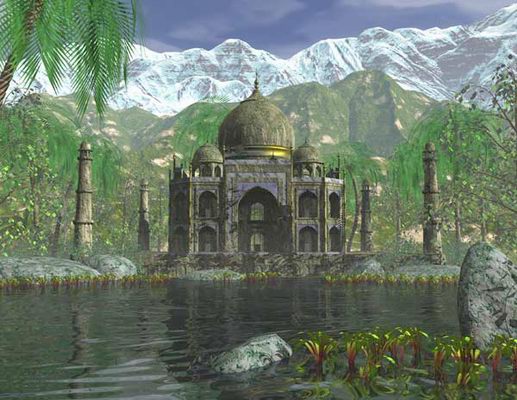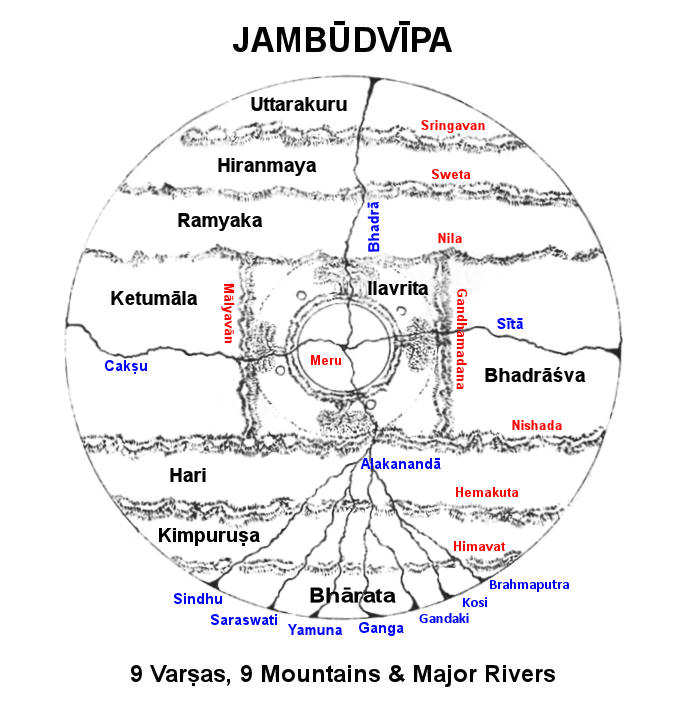DESIBUZZCanada
Events Listings
Dummy Post

International Day Of Yoga To Be Virtually Celebrated Saturday At 4pm

CANCELLED: Coronavirus Fears Kills Surrey’s Vaisakhi Day Parade

ADVERTISE WITH US: DESIBUZZCanada Is The Most Read South Asian Publication Online

SURREY LIBRARIES: Get Technology Help At Surrey Libraries

WALLY OPPAL: Surrey Police Transition Update On Feb. 26

GONE ARE THE DAYS - Feature Documentary Trailer

Technology Help At Surrey Libraries

Birding Walks

Plea Poetry/short Story : Youth Contest

International Folk Dancing Drop-in Sessions
JAMBOODVIPA: The Long Journey Of How The Land Of Rose Apple Forests Came To Be Known As India
- November 5, 2020

By Suresh Kurl
Not only do the spirits of the living beings go through the cycles of rebirths, countries go through them as well. Thousands of years before the birth of Christ, this South Asian subcontinent, resting between the Ganges and Yamuna rivers, presently known as India, used to be called, "Jamboodvipa," named after her juicy rose apple forests.
The second time, the name of this agriculturally rich land changed to "Bharatvarsha," was during the reign of the Emperor "Bharata," born in the Lunar Dynasty around 3237 B.C. His empire extended all the way from Kashmir to the Kumari. Kumari-Kandam refers to a mythical continent in Tamil, located south in the Indian Ocean.
Later, during the reign of Emperor Ashoka, around 250 BC, this forest of rich rose apple, came to be called, Aryavarta -- the sacred land of the Aryans and the abode of the noble-ones.
The fourth time, her name changed, was when people, living on the east coast of the river Sindhu (a large body of water, sea, or ocean" in Classical Sanskrit), speaking Avesta and ancient Persian, entered this country. They called her, "Hindu" because they pronounced the sound, “S;” as “H” as in Hindu.

Initially, the word, 'Hindu' was only meant for the people of this land. However, later the word came to be used for their faith as well. Later, the Sanskrit suffix, "-sthan," meaning an abode or place, was added to the word Hindu, thus naming coining a new name, 'Hindustan," the land of the Hindus.
The Arabic speakers gave "Hindustan" their own version and called her, "Al-Hind," as referred in the 11th century 'Tarikhe Al-Hind' (The History of India). The word "Hind" is still used in phrases such as, "Jay-Hind" (Victory to India) or in "Hind-Maha-Sagar," (the Indian Ocean).

As time moved on, the Persian Achaemenid Empire passed on the name "Hindu" to the Greeks as Indós (Ἰνδός), which they adopted as "Indus.” However, when Hindustan captured the attention of the Europeans for her riches and spices, they called her "India." And ever since then, the country has come to be known as India.
Then, came the British, who during their almost 300 years of residency in India, added their English suffix, "-ism" to the Persian word 'Hindu' and coined, "Hinduism" to describe the philosophy and faith of the body of its followers. Today, this word and what it stands for is known all over the world.
Suresh Kurl is a former University Professor, a retired Registrar of the BC Benefits Appeal Board (Govt. of B.C.), a former-Member of the National Parole Board (Govt. of Canada) and a Member of the Provincial Committee on Diversity and Policing, and a writer and public speaker. Suresh Kurl is also a recipient of Top 25 Canadian Immigrants Award.












